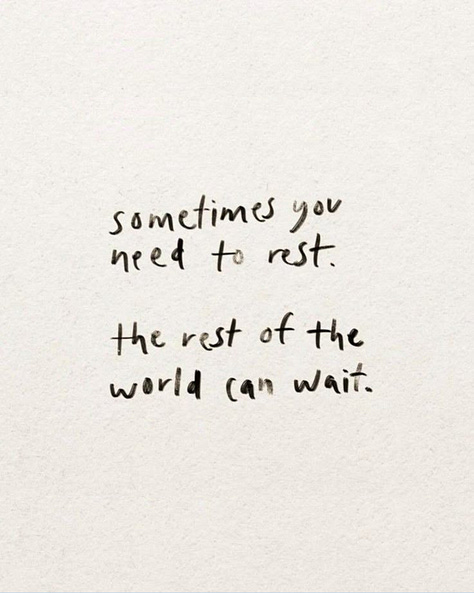“Listen. Are you breathing just a little. And calling it a life?” Mary Oliver
Part One.
Holding Out
Have you ever heard the phrase, ‘holding out for perfect is holding you back’? Winston Churchill said something similar: “perfection is the enemy of progress”. It is a sentiment re-phrased and repeated by the brightest minds throughout the centuries.
“Perfection is a twenty-ton shield that we lug around thinking it will protect us when, in fact, it’s the thing that’s really preventing us from taking flight”.
Bréne Brown
Perfection is a dead weight. It is our nature as human beings to be imperfect, so why do we continue to strive for the ever illusive state that is perfection?
The P word was something I always associated with academics and kids with tough parents who went to good Universities and could afford to hire tutors. I didn’t fit into this category. Neither of my parents had been to University and at school I was more than happy to simply pass maths and science. I wasn’t about to waste my time working hard for straight A’s in subjects I had no interest in. Art though, was something I had to ace.
Remember in Reception (read: Kindergarten) when you painted your first self portrait and it looked like a Picasso and a Pollock painting had a baby? Mine was received with such awe that I still remember it (and I barely remember yesterday). I was always pushed to be involved in art projects at school but, to be honest, I found it all quite tedious. I didn’t hold much patience for painting and I never understood the praise. Thus began a pattern of believing I have to be brilliant at creative practices, and feeling that nothing I do is ever quite good enough. This came sharply into focus for me last year at a pottery painting and pizza night which I think was supposed to be mindful, but which I found intensely stressful despite trying to reframe my thinking (“It’s just a mug - This is supposed to be fun and calming - Be. Calmed.”).
“My own expectations are the heaviest weight I have ever carried”
Louise Kaufmann
I am lucky to have been told I am “more than capable”. In reality though I fall at the first hurdle almost every time I start something new because I find it all so overwhelming, the smallest task becoming so difficult it never gets done. I fail, and over the years this feeling of failure has bled into everything else. I get anxious. I get tired. I procrastinate.
But this is all very common.
In her book The Perfectionist's Guide to Losing Control, Katherine Morgan Schafler highlights 5 types of perfectionists: Classic Perfectionists, Intense Perfectionists, Parisian Perfectionists, Procrastinator Perfectionists, and Messy Perfectionists. I fall heavily and drowsily into the “Procrastinator Perfectionist” category.
These perfectionists use procrastination as a shield against their fear of failure, their aspirations buried beneath the weight of unrealised potential, because why try if the result won’t ever be good enough?
“My quest to become my best, most fulfilled self has rarely come from love or curiosity. More often, it’s been fuelled by comparison, perfectionism, and the belief that I have to be extraordinary to justify my place in the world.”
Perfectionist attitudes interfere with success, manifesting feelings of intolerance to uncertainty that pervade our work and our lives. We want to do everything ourselves, question every decision we ever make and constantly look for reassurance from others. We avoid fully committing to things, and avoid other situations altogether. We doubt our ability and we procrastinate, and as Sylvia Plath wisely wrote: “the worst enemy of creativity is self-doubt”.
Part Two.
The Vicious Circle
According to Unplugged, 88% of us procrastinate daily. What sets perfectionists apart is a vicious circle of self-sabotage. The repeated setting up of unachievable goals which inevitably go unreached. All or nothing thinking, overplanning, and holding out for a specific occasion or mood to strike, hold us back from moving forward.
These thoughts and behaviours are rooted in the F word: Fear. Fear of failure, fear of making mistakes, fear of disapproval, and so on.
“We don’t procrastinate because we are lazy. We procrastinate because we are scared.”
Amie McNee, We Need Your Art
We equate failure with a lack of personal value, made more acute by witnessing others achieve success with seemingly little stress, minimum effort and maximum confidence.
We think that trying to be perfect will protect us from criticism, rejection and disapproval, but in reality the desire to be perfect denies us a sense of satisfaction and often causes us to achieve far less than those with realistic goals. In fact, there is no evidence to show that perfectionists are any more successful than others. We do know however, that self-critical behaviours are common among perfectionists, making us particularly vulnerable to low self-esteem, anxiety and depression.
“Our whole society seems to spin to the melody of achievement, of amelioration, of happiness – leaving those other, thornier, less sexy emotions to fend for themselves”
While I take pride in my work, pride is not something I feel for what I have achieved in my life and career. When I graduated University I felt no sense of achievement. I couldn’t understand the personal significance those around me seemed to feel. I’m always surprised when people respond enthusiastically to what I do and have done. It can be hard to understand or recognise the larger significance of our small victories, and what a shame that is.
Perhaps it is the fact we struggle and find things difficult that makes those little wins even more worthy of celebration.
Part Three.
Moving Forward
I appreciate that, if you’re anything like me and your immediate response to any minor error or mistake is “I’m a piece of shit”, it isn’t easy to reframe your thinking into something positive and productive. The fact is though that when we feel good our minds open up, we take in more information, and we see more possibilities around us.
“Success won’t make you happy but happiness will make you successful”
Maxie McCoy, You’re Not Lost
In his brilliant book Feel-Good Productivity, Ali Abdaal encourages readers to introduce playfulness into their work by considering what a task would look like if it were fun. “Play”, he writes, “restores the mentally and physically fatigued individual through participation in activity which is pleasurable and relaxing”. Introducing music, visiting somewhere new or simply changing your route to work every once in a while can put a positive spin on your day and offer inspiration.
People who frequently experience positive emotions aren’t just more sociable, optimistic and creative, they accomplish more.
“If one wants to be active, one mustn’t be afraid to do something wrong sometimes, not afraid to lapse into some mistakes. To be good, many people think that they’ll achieve it by doing no harm - and that’s a lie”
Vincent Van Gogh
Don’t get yourself down by counting the costs of your procrastination. Show yourself some compassion. Choose self-care over self-flagellation and over-achievement. Shift your goal post from 100% to 70%. Remember that 20% of our efforts deliver 80% of a result. Done is better than perfect, and it’s also better for your overall health.
Take small steps towards becoming a “healthy striver”. The healthy striver enjoys the process and the outcome, she bounces back from failure quickly and with energy, she recognises mistakes as opportunities, and she sets herself goals just beyond her reach.
“Productivity doesn’t make you a better person”
Pandora Sykes
Don’t measure productivity by how drained you feel at the end of the day. Press pause, take it easy and be kind to yourself.
Epilogue.
Don’t Hesitate
If you suddenly and unexpectedly feel joy,
don't hesitate. Give in to it. There are plenty
of lives and whole towns destroyed or about
to be. We are not wise, and not very often
kind. And much can never be redeemed.
Still, life has some possibility left. Perhaps this
is its way of fighting back, that sometimes
something happens better than all the riches
or power in the world. It could be anything,
but very likely you notice it in the instant
when love begins. Anyway, that's often the
case. Anyway, whatever it is, don't be afraid
of its plenty. Joy is not made to be a crumb.
Mary Oliver
Further Reading
Notes On: Rules for Healing by
Striving Was Supposed To Save Me by
How To Fail: Everything I’ve Ever Learned From Things Going Wrong by
The Perfectionist’s Guide To Losing Control by Katherine Morgan Schafler
Feel-Good Productivity by Ali Abdaal












I loved this and I'm honoured to get a mention! Thank you 🫶
I loved reading this work, it’s so nicely structured that reading through it was a piece of cake. You’ve done such great work to word everything perfectly!